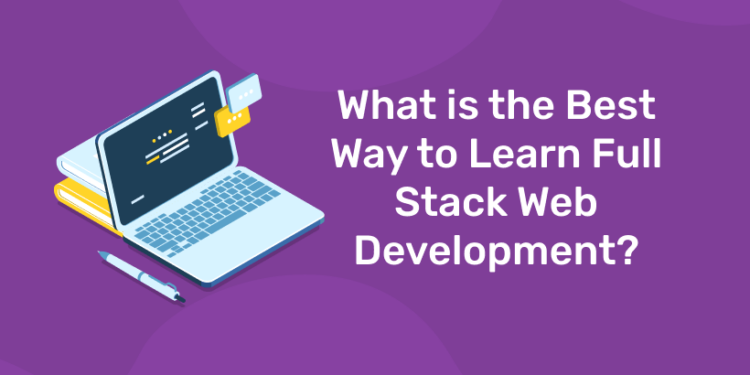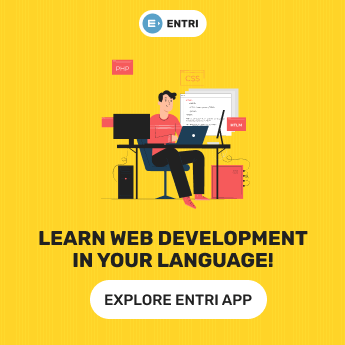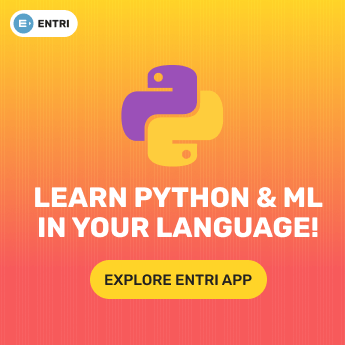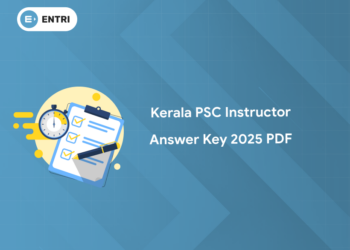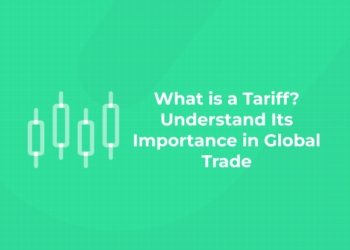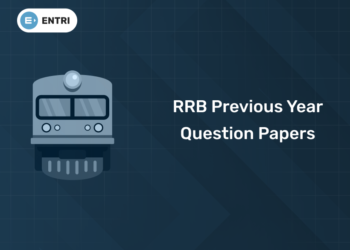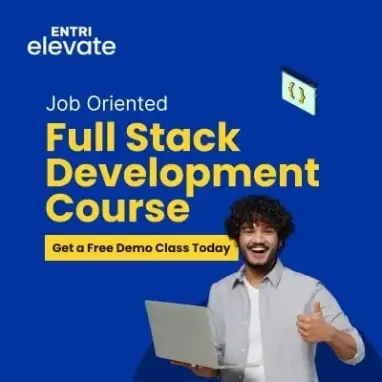Table of Contents
A quick Google search for “full stack development” provides an impossibly long list of acronyms: HTML, CSS, JS, MySQL, and PHP, just to name a few. At heart, full stack developers are highly versatile jacks-of-all-trades in an industry that demands comprehensive programming knowledge. Learning how to become a full stack web developer isn’t as difficult or time-consuming as you initially might think. In this article, we will take you how to learn Full Stack Web Development and how you can prepare yourself for a full-blown career in development.
What is a Full Stack Developer?
To become a full stack developer, you will need to familiarize yourself with two basic web development concepts: the front end and the back end.
The front end, also known as client-side or customer-facing side, refers to all the elements of a computer application that users interact with directly. By contrast, the back end encompasses all the behind-the-scenes tech that computes business logic, fulfills user requests, and permanently stores sensitive data.
You can think of the front end as the tip of an iceberg, while the bulk of the unseen back end extends far below the water’s surface.
Front end developers create and optimize visible parts of a website, making components responsive to different viewing environments, such as smartphones, tablets, and desktops. They use client-facing programming languages, like HTML, CSS, and JavaScript, to render an engaging site.
On the other hand, back end development requires programmers to build and refine the internal software that operates a company’s databases, servers, and proprietary software. Back end developers are responsible for creating the pathways to deliver information to and from users who operate front end interfaces.
Learn Full Stack Development with experts here
Identify the Full Stack Developer Skills You Need to Learn
1: Which of the following is a JavaScript framework/library?
Every learner’s path will be slightly different depending on their preexisting experience and skill set. If you’re a true beginner, you’ll require specialized training and project experience to become a developer. The same applies to hobbyists, who will need to upskill much more than professional developers who hope to upgrade their careers.
Take stock of your skills! Here are the best full stack developer course contents that you will need to master if you want to thrive as a full stack developer:
- HTML
- CSS
- JavaScript
- DOM Manipulation
- SQL/NoSQL
- Java
- Object-Oriented Programming
While a full stack developer’s education is never really complete, the above skills will provide you with a good foundation!
Determine Your Ideal Timeline
How soon do you want to go from hitting the books to landing your first entry-level developer position? As with your earlier skill assessment, establishing a concrete timeline can help you choose your educational journey.
Consider the following questions:
- Are you willing to take part-time courses while maintaining your current job?
- Would you prefer an intensive, full-time education that would allow you to land a job as quickly as possible?
- Do you prefer quicker, skills-based courses or formal, theory-heavy education?
- What learning opportunity will allow you to pursue your education without infringing on your personal obligations?
If you’ve already locked yourself into a full-time career or family commitments, it can be challenging to start a new training regimen. But it is by no means impossible. Think about the changes you are willing to make to pursue your dreams — and build your educational schedule accordingly.
Power up your career with Entri Elevate – Full Stack Development Course!
 Start Coding Today! Enroll Now with Easy EMI Options.
Start Coding Today! Enroll Now with Easy EMI Options. 

Get Hired as a Full-Stack Developer: Master the Skills Employers Are Looking For!
Start Learning With EMI Payment OptionsStart Learning in a Format That Suits You
In the era of open-source everything, it’s easier than ever to learn how to become a full stack developer — but it’s also easier to get lost in the muck. There’s a near-daunting number of distinct educational routes available to newcomers.
Below, we touch on the primary methods that aspiring developers use to become marketable programmers, and provide resources to help you on your journey.
There isn’t one best way to learn full stack development, so while you’re perusing the options, make sure to compare your timeline and learning requirements to the listed opportunities.
Self-Guided Courses
There’s an enormous selection of instructor-guided, self-led virtual courses readily available for new learners.
Compared to boot camps, self-guided courses offer much greater flexibility and a lower cost — some are even free! Depending on the platform you opt for, you may even have access to additional resources, instructor support, and an active learner community.
That said, self-guided courses differ significantly in terms of quality. While some may provide extra resources, many don’t. The amount of support you receive is, in most cases, tied to the money you shell out — although that logic shouldn’t preclude you from thoroughly vetting platforms before you enroll! Check out participant reviews and only take courses that have been published through reputable platforms.
Degree Programs
Four-year degree programs remain one of the most common educational paths for aspiring developers. According to Stack Overflow’s 2020 Developers Study, roughly three-quarters of professional developers worldwide hold at least a bachelor’s degree, while 49.3 percent only have a bachelor’s degree.
The benefits are evident: You receive a comprehensive, broad education that demonstrates competency to employers. College allows you to build a knock-out portfolio, land internships, and make valuable connections.
However, it requires time and financial commitment to enroll in and complete a degree program. College may be best for those that have yet to pursue their undergraduate education or those who want to gain a comprehensive understanding of both development theory and practice. Learners should opt for majors that prepare them for full stack development, such as computer science or web development.
Stack Overflow’s 2020 Developers Study also found that the most popular majors for developers were:
- Computer science, computer engineering, or software engineering (62.6%)
- Other engineering discipline, such as civil, electrical, or mechanical (9.3%)
- Information systems, information technology, or system administration (7.9%)
- Natural sciences, such as biology, chemistry, or physics (4.4%)
- Web development or web design (3.3%)
Are you aspiring for a booming career in IT? If YES, then dive in |
||
Full Stack Developer Course |
Python Programming Course |
Data Science and Machine Learning Course |
Books and Tutorials
It’s possible to learn full stack skills independently by referencing books, online tutorials, and other media.
Stack Overflow’s 2020 survey found that 85 percent of 46,383 developers felt that formal education is at least “somewhat important.” However, that doesn’t mean it’s impossible to succeed through self-directed learning; nearly 16 percent responded that formal education is “not at all important or necessary.”
Keep in mind that self-learning requires a special blend of discipline and passion. Even with all the book knowledge in the world, many employers are reluctant to hire someone who hasn’t received any formal certification.
However, book learning may function better as an entryway into more formal instruction down the road. By establishing coding as a hobby, you’re much more likely to learn enthusiastically in a structured course.
Moreover, all experienced developers are, in one way or another, self-directed learners. Technologies change so rapidly that developers need to learn quickly or risk being left behind.
Interested? Check out a few of our favorite books covering full stack development.
- The Full Stack Developer by Chris Northwood. In this pivotal book, Northwood explores the essential skills every full stack developer needs. The book is primarily geared towards developers new to AGILE development, project management, QA, and back end patterns.
- Eloquent JavaScript by Marjin Haverbeke. Haverbeke balances the nitty-gritty technical aspects of the language JavaScript with a principled approach. The book is tutorial-style, allowing developers to follow along with their own projects.
- ASP.NET Core 3 and Angular 9 by Valerio De Sanctis. De Sanctis explores the latest developments in designing, building, and deploying a Single Page Application with ASP.NET and Angular. Full stack at heart, the book touches on data management, web APIs, app design, and deployment.
- Full-Stack React Projects by Shama Hoque. Curious about the MERN stack? Hoque uncovers how to create dynamic web applications and leverage the power of React.js to build complex interfaces.
Once you are done hitting the books, it’s time to start building an “employer-worthy” portfolio.
Begin Building Your Portfolio
Contrary to what a frustrated job-searcher might think, employers don’t organize interviews to turn people down. A sane hiring manager wants to believe that you’re the perfect person for the position. It’s your job to provide them with as much evidence of your capabilities as possible.
That’s why portfolios are so crucial: they’re the first impression recruiters have of you. If you have any projects you’re particularly proud of, use your portfolio to showcase them.
Display your work by describing the technologies used, your role in the project, and showing off screenshots. As a full stack design professional, your work should demonstrate an eye for design and excellent technical know-how.
Building a portfolio is perhaps the best way to learn full stack development.
Learn to code from industry experts! Enroll here
Start the Job Search
Once you have built a portfolio with two or more polished projects, you are ready to start job hunting. Although it’s a little daunting, the right resume and skill set can capture a hiring manager’s attention.
Make sure to define your career goals ahead of time, get cover letter feedback, and tailor your resume for the specific positions you’re applying for. Don’t limit yourself to online searches; reach out to companies directly, attend career fairs, and sign up for weekly job alerts.
Most importantly, don’t get discouraged if your inbox fills with rejections (or nothing at all). According to Indeed, it takes the average job-seeker roughly nine weeks to apply, interview, and land a new role.
 Start Coding Today! Enroll Now with Easy EMI Options.
Start Coding Today! Enroll Now with Easy EMI Options. 

Get Hired as a Full-Stack Developer: Master the Skills Employers Are Looking For!
Start Learning With EMI Payment OptionsBE A FULL STACK DEVELOPER ! ENROLL NOW !!
Do Well on the Interview
Got the interview? Take a moment to pat yourself on the back — and then explore a few of the most important tips for getting that second interview and, hopefully, landing the role.
Refresh Your Coding Skills
Virtually all full stack coding interviews will include a technical portion, which allows the hiring manager to gauge your current skill level. Continually practice on online platforms.
Keep in mind that there are many different varieties of technical challenges, such as live coding exercises, take-home assessments, design challenges, and soft analysis of programmatic thinking.
Prepare for each type by completing code challenges within a 30- to 40-minute timeframe. Look at examples of broken code to spot bugs, fix them, and then explain how you did it.
Preparation for Behavioral Questions
Hiring managers don’t just want to hire a programming wizard; they want someone who will mesh with the company culture and work well with others.
Prepare answers beforehand that show how you deal with stress, work disagreements, or challenges in daily life. Read up on the most common behavioral questions so that you are not caught off guard.
Prepare for Verbal Explanations
In the tech world, live-coding and whiteboarding are nearly universal. During a whiteboard exercise, you should explain your thinking process and how you arrive at a solution.
When approaching a problem, always ask the hiring manager for more specification: What type of input does the function consume? Should the function return a specific data type?
Be prepared to analyze the efficacy of solutions based on their time and space complexity. How efficient is your code? Can your application be refactored to take up less memory or run faster.
Even if you don’t get it right on the first try, managers are more concerned that you’re able to think your way through a complex problem. Making code work isn’t everything; you’ve got to understand why it does what it does. Employers want candidates to understand all the necessary parts of the tech stack. You should make it known that you are prepared to be a lifelong learner and feel comfortable exploring new technologies.
Full Stack Developer Course with Placement
So, we have learned that the Best Way to Learn Full Stack Web Development is by enrolling into one of the best full stack developer course. Entri Elevate program will help you to learn full stack development and to get placed in a reputed company.
Full stack development allows you to be on the emerging frontier of technology, exploring novel solutions with cutting-edge companies. Moreover, because the industry is rapidly growing, it offers tremendous career potential and security to tech-savvy coders who want to make their mark in the programming field.
If you are thinking about becoming a web developer, why haven’t you started pursuing your dream? Start considering your educational opportunities now; there’s no time like the present to start furthering your goals and landing a fulfilling position.



